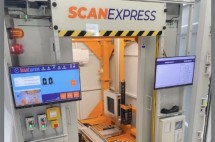BUMN Infrastructure Together Funds Infrastructure Development Through Private Investment Fund
By : Arya Mandala And Aldo Bella Putra | Sunday, April 29 2018 - 18:00 IWST

Ilustrasi Pembangunan Infrastruktur (Ist)
INDUSTRY.co.id - Jakarta, A total of 28 SOEs collaborate to form Private Investment Fund (PIF) in order to support the development of national infrastructure.
Bahana was appointed as the manager of the BUMN investment fund under the supervision of PIF.
The government's commitment to providing and improving infrastructure throughout Indonesia continues to roll.
Although some State-Owned Enterprises (SOEs) are working and even some infrastructure projects have been completed, but the government still feel the need to boost it.
For the sake of rolling out infrastructure development to increase connectivity across Indonesia, Bahana Kapital Investa along with 27 other SOEs through the support of the ministry of SOEs agreed to form a private investment fund company to manage the investment funds owned by a number of SOEs to further be used to finance a number of strategic infrastructure projects.
Bahana Kapital Investa together with Danareksa Capital which is a subsidiary of PT. Bahana PUI (Persero) and PT. Danareksa (Persero) will manage the funds owned by 8 insurance companies such as Taspen, Askrindo, Asabri and 13 pension funds (Dapen) including Dapen Bank Mandiri, BNI, BRI, BTN, Jasa Marga, Telkom and others.
The management of these funds will be under the supervision of the Private Investment Fund which is expected to take shape in the near future.
"To bring Indonesia to compete with neighboring countries in Southeast Asia in attracting foreign investors to invest in Indonesia, we must be able to provide adequate infrastructure facilities so that logistics costs can be reduced," said Marciano H Herman - President Director of PT Bahana Pembinaan Usaha Indonesia (Persero) who is also Commissioner Bahana Kapital Investa.
"Through this scheme, we believe the acceleration of national development can be done so that the economic stretch will be stronger in the future," added Marciano.
The establishment of this private investment has been agreed in the MOU signed on March 29, 2018 by Bahana Kapital Investa and Danareksa Capital along with 27 other SOEs directly witnessed by the Minister of SOE Rini Soemarno accompanied by the Deputy of Financial Services business Gatot Trihargo and Deputy for the restructuring and business development of Aloysius Kiik Ro.
As known, in the State Budget (APBN) 2018, the government allocated Rp 410.7 trillion for infrastructure spending, up from last year's budget of Rp 388.3 trillion, which will be used to build 865 km of new roads , 25 km of toll roads, 8,695 km of bridges, completion and construction of 8 airports.
But this fund is certainly not enough to fund all national strategic projects that require substantial funds.
The presence of BUMN Fund is expected to participate to support the development of other infrastructure projects.
"The presence of this investment fund will be one of the solutions for more organized infrastructure funding, as well as optimizing the management of state-owned funds either by investing in projects or securities portfolios," said President Director of PT. Bahana PUI Marciano H Herman.
Meanwhile, Minister of State-Owned Enterprises (SOE) Rini M Soemarno appreciated the plan of SOE Private Investment Fund establishment.
According to him, it can also be used to buy capital market products including support for non-brown field infrastructure, or still green field.
As is known, brown field infrastructure projects are projects that are continuing projects that already exist.
Meanwhile, the green field infrastructure project is a completely new project.
Rini revealed the current national capital market in a depressed condition because of the strengthening US dollar. As a result, the rupiah weakened.
Nevertheless, according to him, Indonesia's economic fundamentals are in good condition.
Thus, Indonesia's stock market should not weaken.
"This state-owned fund is the one that can stabilize the capital market, get into the stock capital market, buy the bonds that are going down," said Rini.
The President Director of Pension Fund PT Bank Tabungan Negara Tbk (BTN) Saut Pardede who asked for his response in a different time rate, in fact there has been no significant obstacle to invest in infrastructure.
It also has a portfolio investment in this sector, one with the purchase of bonds owned by state-owned enterprises. Provided, she said, risk and return is appropriate.
Even so, Saut suspects the debt ratio of state-owned enterprises is quite large.
"Perhaps infrastructure SOBs are already heavily indebted into debt so that new schemes are required in funding," she said recently.
The possibility of a high debt of BUMN Karya is also disclosed senior researcher at the Institute for Development of Economics and Finance (Indef) Faisal Basri.
According to him, infrastructure development actually relies more on financing from the internal funds of BUMNs that get the development assignment.
According to him, the infrastructure that is being intensively built by the state through SOEs mostly comes from the funds of each company.
Not derived from direct government debt.
As reflected in the financial statements of state-owned construction companies from the disclosure, PT Adhi Karya Tbk (ADHI) has recorded liabilities increased from Rp 14.59 trillion to Rp 22.46 trillion.
The figure consists of total short-term liabilities of Rp 17.6 trillion and total long-term liabilities of Rp 4.8 trillion.
Furthermore, PT Waskita Karya Tbk (WSKT), has a liability which also showed significant increase from Rp 44.56 trillion to Rp 75.14 trillion.
Consists of short term liabilities amounting to Rp 52.3 trillion and long term Rp 22.8 trillion.
Meanwhile PT Wijaya Karya Tbk (WIKA) total liabilities rose from Rp 18.6 trillion to Rp 31.05 trillion.
Consists of short term liabilities of Rp 25.9 trillion and long term Rp 5.07 trillion.
PT PP (Persero) Tbk (PTPP) amount of liabilities increased from Rp 20.4 trillion to Rp 27.5 trillion. Consists of short term liabilities of Rp 20.69 trillion and long term Rp 6.8 trillion.
Read Also
Today's Industry

Jumat, 02 Mei 2025 - 10:46 WIB
Binawan and Government Support Indonesian Nurses in Europe through Scholarships
In the midst of the viral #KaburAjaDulu hashtag as a symbol of the young generation's disappointment with domestic working conditions, Binawan responded with real action: dispatching Indonesian…

Jumat, 28 Maret 2025 - 22:21 WIB
SUNeVision Initiates MEGA IDC Phase Two Development
SUNeVision, the technology arm of Sun Hung Kai Properties (SHKP), today announced the commencement of construction for Phase Two of MEGA IDC in Tseung Kwan O. As Hong Kong's largest data centre…

Jumat, 28 Maret 2025 - 22:07 WIB
TDL Records New Revenue Record of IDR 25 Trillion in 2024 Ahead of 50th Anniversary
PT Metrodata Electronics Tbk (MTDL), the largest technology Company with the most complete IT and telecommunications products in Indonesia, managed to record a revenue of IDR 25 trillion in…

Jumat, 28 Maret 2025 - 22:00 WIB
Wireless Logic Selected By Thales As IoT Connectivity Partner
Wireless Logic, a global leader in IoT connectivity solutions has been selected by Thales, a global leader in advanced eSIM technologies, to enable secure, scalable and resilient IoT connectivity…

Jumat, 28 Maret 2025 - 21:53 WIB
Microvista Expands International Presence with Mobile CT System ScanExpress
The German specialist in industrial computed tomography and non-destructive testing, Microvista, announces the European expansion of its innovative mobile CT system, ScanExpress. The system…

















News Comment